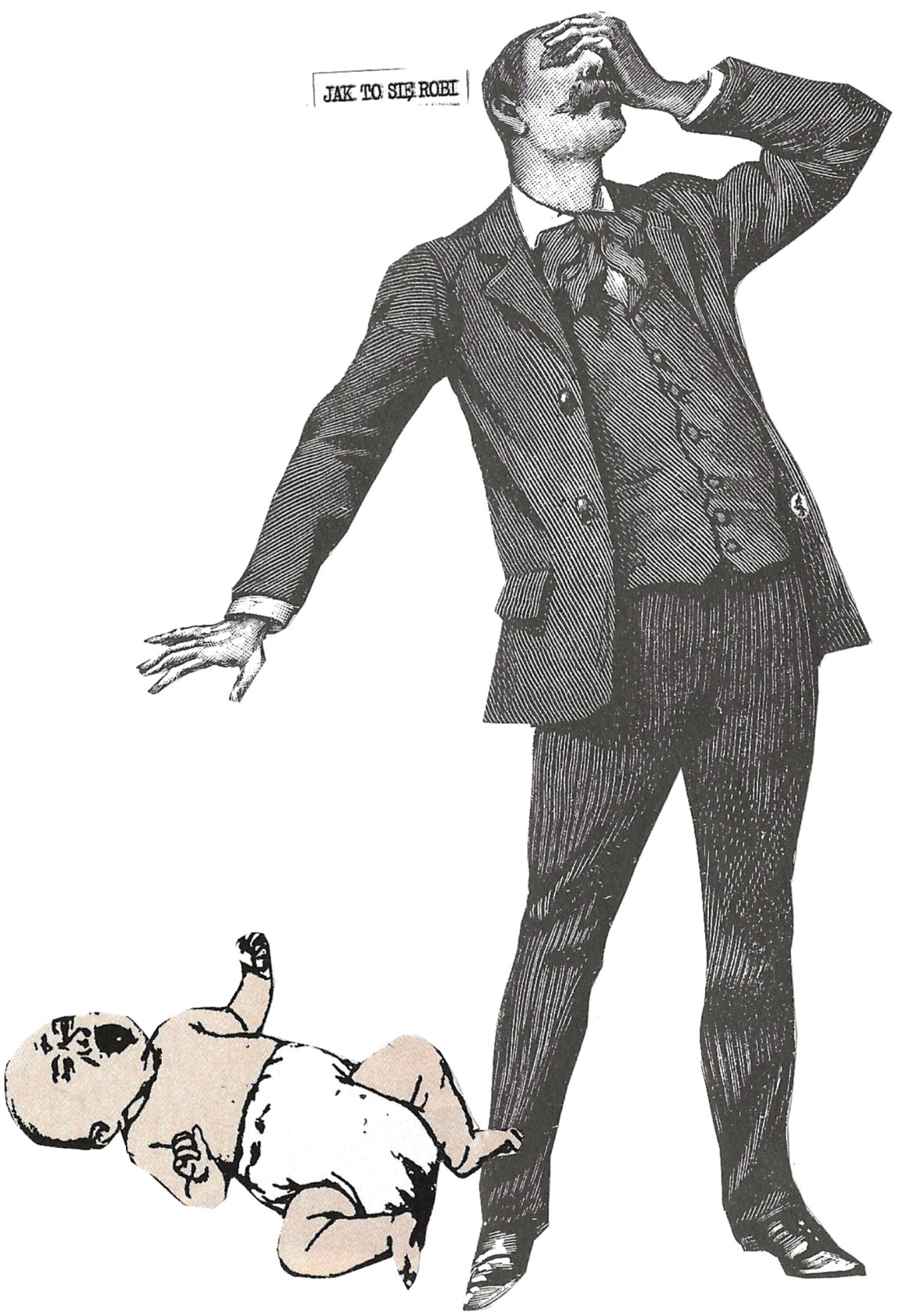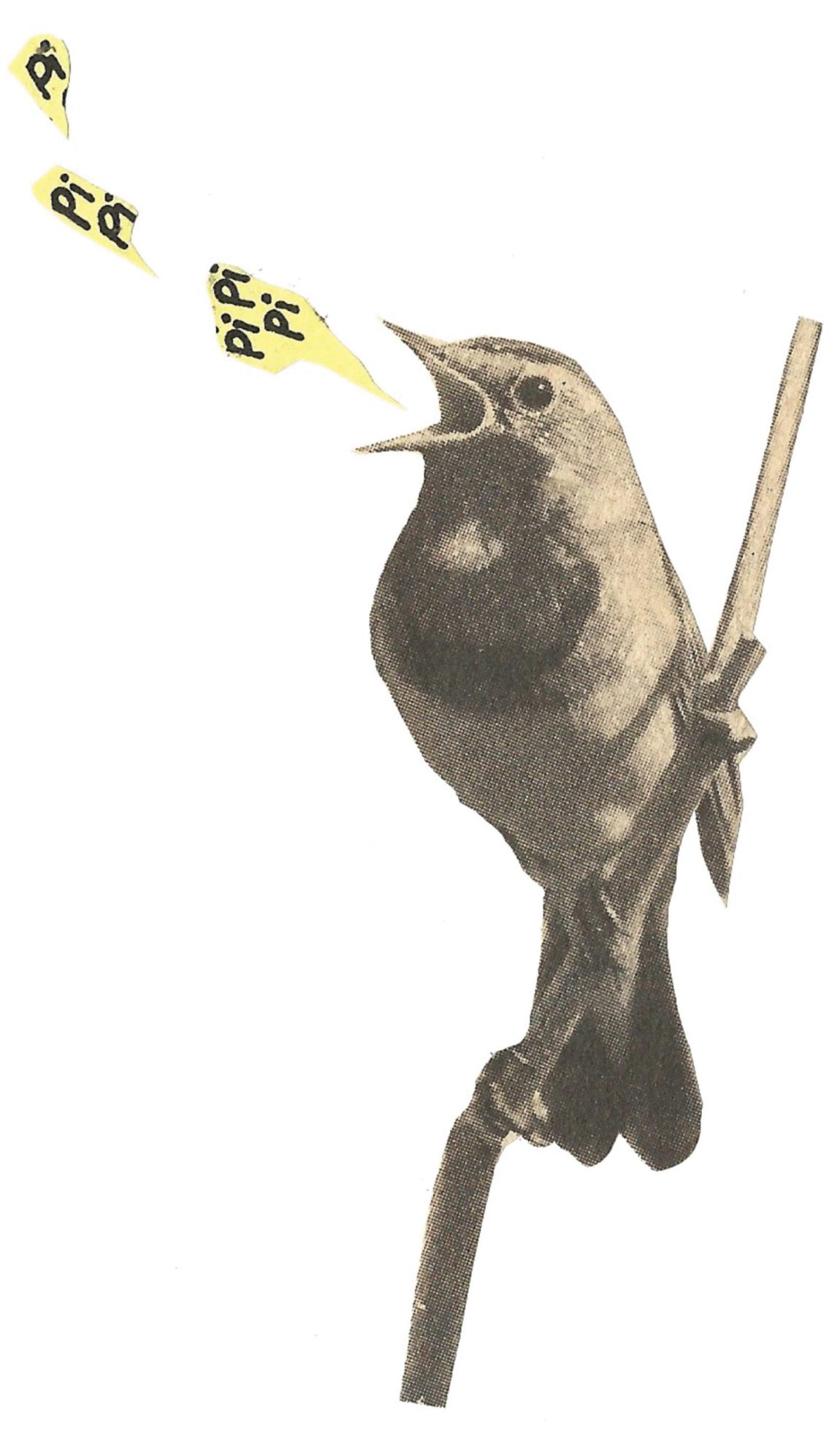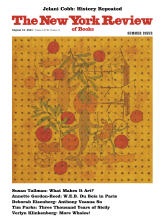The letters below are drawn from How to Start Writing (and When to Stop), a collection of the advice columns that Wisława Szymborska wrote anonymously in the Polish journal Życie literackie (Literary Life) from 1960 to 1981.* It was a time, Szymborska later told the interviewer Teresa Walas, when poets were exalted in Poland: “Let’s not forget how bleak and dreary those days were. Each of us would attain boundless bliss by merging with the nameless masses, so we were told. Whereas in reality, we all yearn to be different, to stand out in a crowd. There weren’t many choices back then. Getting your name in print was the best option.”
—The Editors
To the Author of The Pianist’s World:
We advise you—for a few months at least—to read only the great humorists. You won’t be wasting time: such activity provides rest and recreation for a mind worn down by its own lyricism. It also demonstrates, incidentally, the folly of excessive self-importance. After this course of treatment, you will see your poems differently. The mood of The Pianist’s World will strike you as contrived, and the metaphor “life licks us with a tongue of contrasts” will no longer fill you with writerly pride. Best regards.
To a Seeker, from Kudowa:
No, we don’t have any guides for writing novels. We hear such things appear in the United States, but we make bold to question their worth for one simple reason: Wouldn’t any author who possessed a fail-proof recipe for literary success rather profit from it himself than write guidebooks for a living? Right? Right.
To P.Z.D., from Chorzów:
“Please give me some hope of publication, or at least provide some consolation.” We must, after reading, choose the latter. So attention please, we’re giving comfort. A splendid fate awaits you, the fate of a reader, and a reader of the highest caliber, that is to say, disinterested—the fate of a lover of literature, who will always be its steadiest companion, the conquest, not the conqueror. You will read it all for the pleasure of reading. Not spotting “tricks,” not wondering if this or that passage might be better written, or just as well, but differently. No envy, no dejection, no attacks of spleen, none of the sensations accompanying the reader who also writes
For you Dante will always be Dante, whether or not he had aunts in the publishing business. You will not be tortured at night by the question of why X., who writes free verse, gets published, while you, who rhyme relentlessly while counting syllables on both hands, don’t even merit rejections. The editor’s facial expressions will mean less than nothing to you, while the wincing at various stages will signify, if not nothing, then at least not much. And there is also this not inconsiderable benefit: people speak of incompetent writers, but never of incompetent readers. There are of course hordes of failed readers—needless to say, we do not include you among them—but somehow they get away with it, whereas anyone who writes without success will instantly be deluged in winks and sighs. Not even girlfriends are to be relied upon in such cases. So how do you feel now? Like a king? We should hope so.
To Wojciech Z., from Kielce:
With youth’s carefree ease, you scribble on any subject that comes to mind. Words cascade like an avalanche in spring. Try chewing your pencil and staring out the window in despair every so often.
To M.S., from Koszalin:
“I’ve been criticized for making my stories up and not taking them from experience. Is this correct?” No, it is not. Such doctrinaire assumptions would exclude three quarters of world literature. No writer draws on his life alone. He borrows others’ experience when it suits him, and fuses it with his own—or uses his imagination. But a true artist imagines events with all the force of reality: they become personal experience. Flaubert declared he was Emma Bovary for precisely this reason. If naysayers had persuaded him that imagination was off-limits, he’d have dropped the novel in hopes that some real Madame Bovary would come along to finish it. The result would doubtless be the work of a true graphomaniac. So much for theory. When you send your stories, we will not check them against your résumé. We are literary critics, not detectives.
To Br. Z-ki, from Gdańsk:
The classic old maid was a dowryless creature doomed to wither idly at her parents’ side. Paid employment was not an option, thus independence lay beyond her reach. An old maid’s life was hell. Each holiday brought new humiliation, each year further eroded her hopes of marriage and motherhood. People made fun of old maids. This was laughter at another’s expense, hence in very bad taste. The old maid provides comic relief in your novella Kraków Times. We are not amused.
Advertisement
To L-k B-k, from Słupsk:
We require more from a self-styled Icarus than what unfolds in your protracted poem. You fail to recognize that today’s Icarus rises over a very different landscape. He sees highways swarming with cars and trucks, airports with runways, large cities, extensive ports, and other such realia. Might not a jet rush past his ear at times?
To M-Ł, from Warsaw:
We do not foresee a weekly column of texts composed in Esperanto: it is an artificial language without variety or dialects. No one thinks in Esperanto, no one uses it in daily life, and we doubt it will produce works of lasting value. We applaud your dream of a common human speech, but we hope it will emerge through the peaceful (God willing!) evolution of all languages. However, we do not agree that a universal language will preclude all future warfare. History and personal experience teach us otherwise. An example presents itself: Mr. A. has just punched Mr. B. outside our window, even though they both speak Polish.
To Melissa V., from Kraków:
In this world, everything wears out with daily use—except the rules of grammar. Feel free to use them more frequently. They’ll hold up just fine.
To L.O. 88, from Nowa Huta:
You dismiss your current “unpoetic” occupation without even saying what you do: Is it really beneath our attention? We meet with such reluctance all too frequently these days. For example, our apartment building has been a construction zone for years. Dozens of workers appear in our hallways daily. People knock, we ask “Who’s there?” but no one names a profession: the plasterer, the carpenter, the locksmith, the plumber, the electrician. No, it’s always “the pipes,” “the wires,” “the ceiling.” That’s a shame, since plasterers have an honorable past that “the ceiling” cannot claim. Another calling has recently fallen prey to this sense of false pride. “Mailmen” are now “postal carriers” or “correspondence distributors.” Since when did “mail” become a dirty word?
To O.L., from Kraków:
If you lack the courage to come and talk with us about the poems you sent, why not come anyway? We welcome the timid. They generally seem to set themselves higher standards, they are more persistent and think more deeply. These qualities mean nothing in and of themselves, but in cases of innate ability they perform an invaluable service: they transform it into talent. There’s no need to order a tailcoat for your visit, we are only open until noon.
—Translated from the Polish by Clare Cavanagh
This Issue
August 19, 2021
A Warning Ignored
The Burden of ‘Yes’
The Color Line
-
*
To be published by New Directions in October. All works by Wisława Szymborska copyright © 2000, 2021 by the Wisława Szymborska Foundation. Translation copyright © 2021 by Clare Cavanagh. ↩





